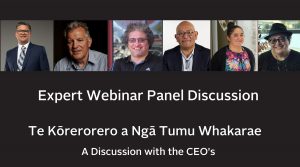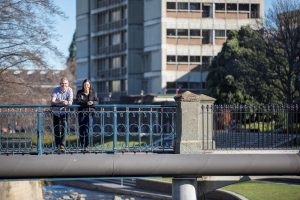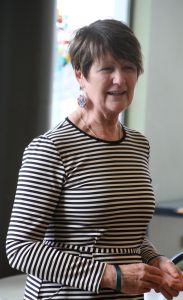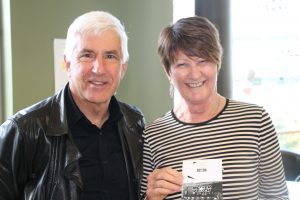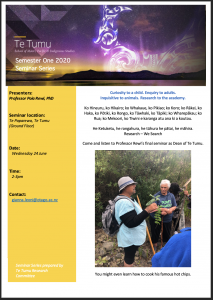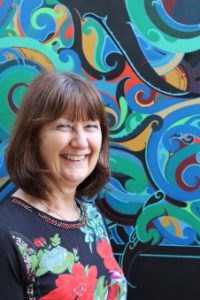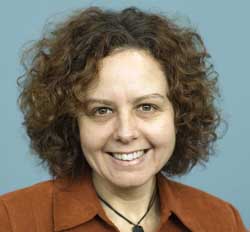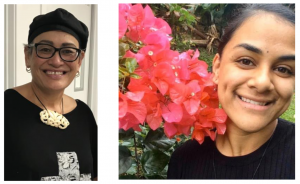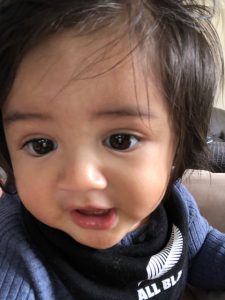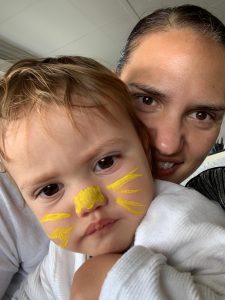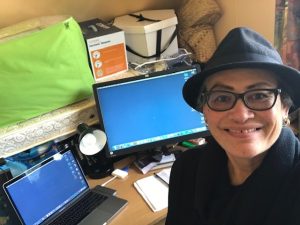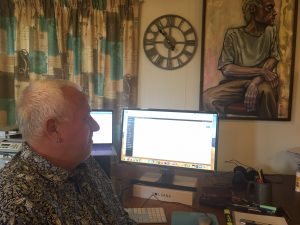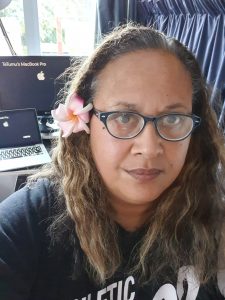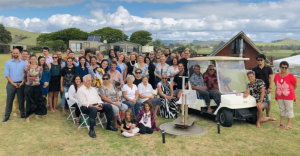Webinar with leading Māori CEOs.
Do you want to listen to listen to some inspiring Māori leaders? Join a webinar hosted by Te Tumu’s Dr Tangiwai Rewi and Dr Gianna Leoni, on behalf of Ngā Pae o te Māramatanga on Friday, 18 September at 2pm. You will hear the words of wisdom from the following CEOs: Shane Taurima (Māori Television), Larry Parr (Te Māngai Pāho), Ngahiwi Apanui (Te Taura Whiri i te Reo Māori) and Dr Poia Rewi (Te Mātāwai). Click here for more info and to register.
Te Tumu input into international cancer research
Regular readers of this blog will know of Karyn Paringatai’s research work. Not only is she an award-winning teacher, an advanced te reo Māori practitioner, and kapa haka aficionado, but she is also undertaking Marsden-funded research on Māori and gastric cancer in collaboration with Professor Parry Guilford of the university’s Centre for Translation Cancer Research. What follows is an update of this research, and some media links for those wanting more information.
Hereditary diffuse gastric cancer (HDGC): updated clinical practice guidelines
Māori are three times more likely to develop stomach cancer than people of European descent. Māori are one of the few populations worldwide where diffuse-type gastric cancer is more common than intestinal-type stomach cancer. Diffuse gastric cancer is an aggresive type of cancer that grows rapidly in the cells of the stomach wall – it does not form a mass or a tumour. These cancer cells spread widely and quickly and it makes it difficult to diagnose. The reasons for this high occurrence of diffuse stomach cancer are unclear but a relatively high frequency of the inherited CDH1 variants in the Māori population is one important reason. When working properly the CDH1 gene controls the growth of cells. But because it has mutated it allows cells to grow uncontrollably – including cancer cells. This genetic mutation is particularly prevalent amongst Māori, but many are unaware of the risk.
When Dr Karyn Paringatai was tested for a CDH1 variant 11 years there were only 3-4 Māori whānau with mutations in this particular gene. That number has since increased to between 12-15 Māori whānau. This prompted researchers and health professionals working in this area and affected whānau and families from all around the world to gather in Wānaka in March 2019 to update the previous management guidelines for HDGC published in 2015. A number of important new and revised recommendations are made in these updated guidelines, which was recently published by Lancet Oncology. However, most pertinent to Māori was that the whānau of any Māori person who has been diagnosed with diffuse stomach cancer be encouraged to have a genetic test, regardless of any other family history. Previously, the guidelines were largely based around the number of cases of this cancer in a family. 11 years ago Karyn had to fight to be tested and prove that she was at risk of HDGC, which was tough to do with her scant knowledge of her whānau’s medical history. That is no longer the case.
Professor Parry Guilford (Te Aho Matatu, Centre for Translation Cancer Research, University of Otago), the lead author of the article, states, “It is very uncommon in international guidelines to single out sub populations, so this is quite a significant move that we hope will reduce their risk as well as helping to reduce inequities in health for Māori.” Karyn, a co-author of these guidelines, is actively encouraging Māori to be tested and to make contact with her for any advice on how to do so. It is important to do so – for the future of our whakapapa.
This research is linked to Karyn’s Marsden funded project E kore au e ngaro – The enduring legacy of whakapapa.
Click here for a link to the updated guidelines in Lancet Oncology
Click on the links in the titles below to access media reports.
| Three, Newshub Live at 6pm, 10/08/2020, Samantha Hayes and Mike McRoberts |
| There are likely to be several hundred Maori unaware they are at high risk of an inherited form of stomach cancer, a New Zealand research team has suggested. The team from the University of Otago is hopeful updated international clinical practice guidelines they helped develop will encourage these people to be tested. |
| Radio NZ – National, Checkpoint, 10/08/2020, Lisa Owen |
| Report by Meriana Johnsen. A move to make it easier to get tested for stomach cancer is expected to save the lives of whanau Maori, and in particular, the several hundred Maori who are unaware they are at risk. New guidelines developed by the University of Otago and Kimihauora Research Clinic allow Maori to be tested for the genetic mutation CDH1 even if there is only one other family member with stomach cancer. |
| Radio NZ – National, 15:00 News, 10/08/2020 | |||||||
| A new testing criterion for identifying stomach cancer developed by Otago University and the Kimihauora Research Clinic is anticipated to save the lives of whanau Maori. Otago University’s Senior Lecturer at the School of Maori, Pacific, and Indigenous Studies Karyn Paringatai says Maori would have fewer holes to jump through.
|
|||||||
| Stomach cancer test to save whanau Maori lives | |||||||
| Radio New Zealand, Other, 10/08/2020 | |||||||
| A move to make it easier to get tested for stomach cancer is expected to save the lives of whānau Māori, and in particular, the several hundred Māori who are unaware they are at risk. New guidelines developed by the University of Otago and Kimihauora Research Clinic allow Maori to be tested for the genetic mutation, CDH1, even if there is only one other family member with stomach cancer. |
| Testing expected to save Maori from stomach cancer |
| Radio New Zealand, Other, 10/08/2020 |
| A research team hopes Maori lives will be saved with a new testing criteria for stomach cancer. The University of Otago and Kimihauora Reseach Clinic have developed the new criteria to make it easier for Maori to be tested for the genetic mutation that leads to the cancer. |
| Changing international guidelines to save Maori lives |
| Radio New Zealand, Other, 10/08/2020 |
| Researchers have managed to get a change to international clinical guidelines to ensure Maori are tested for a gene which causes stomach cancer. Otago University Professor Parry Guilford explains to Jesse why this gene is more prevalent in Maori and can be identified before a person gets cancer. |
| New clinical guidelines for stomach cancer testing aim to improve outcomes for Maori |
| Newshub, Other, 10/08/2020, Dave Goosselink |
| An Otago University team has developed new clinical guidelines for testing stomach cancer in New Zealand – especially in Maori. Maori have a higher risk of developing the disease, due to a cancer-causing gene passed down through some whakapapa. |
| Research team hopes Maori lives will be saved with new testing criteria for stomach cancer |
| New Zealand Doctor Online, Other, 10/08/2020 |
| There are likely to be several hundred Maori unaware they are at high risk of an inherited form of stomach cancer and a New Zealand research team is hopeful updated international clinical practice guidelines they helped develop will encourage these people to be tested. The University of Otago and the Kimihauora Health and Research Clinic’s (Mt Maunganui) work in understanding the role of variants (mutations) in the CDH1 gene in familial stomach cancer and the subsequent development of a genetic test, has dramatically reduced the number of deaths from this form of inherited cancer. |
| A research team hopes Maori lives will be saved by new testing criteria for stomach cancer |
| NZCity, Other, 11/08/2020 |
| Otago University Professor Parry Guilford was part of the research team which in 1997, discovered a gene mutation that makes people more likely to get stomach cancer. He’s now helped develop a new set of testing guidelines for it. |
| Research team hopes Maori lives will be saved with new testing criteria for stomach cancer |
| University of Otago, Other, 10/08/2020, Liane Topham-Kindley |
| There are likely to be several hundred Maori unaware they are at high risk of an inherited form of stomach cancer and a New Zealand research team is hopeful updated international clinical practice guidelines they helped develop will encourage these people to be tested. The University of Otago and the Kimihauora Health and Research Clinic’s (Mt Maunganui) work in understanding the role of variants (mutations) in the I gene in familial stomach cancer and the subsequent development of a genetic test, has dramatically reduced the number of deaths from this form of inherited cancer. |
| Newstalk ZB (Auckland), 10:00 News, 11/08/2020 |
| Otago University Prof Parry Guilford has helped develop new testing guidelines for his 1997 research, with the hope that it will make it easier for Māori to get tests to find out if they have stomach cancer-causing genes. |
| Newstalk ZB (Auckland), 10:00 News, 11/08/2020 |
| Otago University Prof Parry Guilford has helped develop new testing guidelines for his 1997 research, with the hope that it will make it easier for Māori to get tests to find out if they have stomach cancer-causing genes. |
Te Hau Kāinga Summer Scholarships
Are you a Māori university student? Would you like to a do a research project over summer – and get paid for it? The Te Hau Kāinga: Māori Home Front project has three summer scholarships available, starting in December. Under supervision, you can develop your own research project in your own home area, whether a historical report, a mōteatea, a video, or such like – something that you can share with your whānau and community. Or you can undertake a project with one of our partner institutions. If you’re keen and interested, read the information and get in touch! If you know of someone who might be interested, please pass this on to them.
2020/2021 Summer Scholarships
Te Hau Kāinga is a University of Otago-based research project supported by the Marsden Fund to investigate Māori experiences within New Zealand during World War Two. The project is offering three summer scholarships for 2020/2021 for Māori students in their second year or above enrolled at a New Zealand university. The purpose of the scholarships is to enable a promising student the opportunity to undertake sustained research work over the summer period.
Under the supervision of the project leaders, successful applicants will get to design their own projects and outputs, in English, i roto i te reo Māori rānei, which may include (but not be limited to) a written history, waiata, exhibition, or artwork that can be shared with whānau. Alternatively, Te Hau Kāinga can suggest a suitable research project, perhaps based in one of our partner institutions. Depending on the nature of the proposed research, successful candidates can be based anywhere within New Zealand. Summer scholarship recipients will also be involved in public initiatives designed to showcase the project to the wider community, including writing a blog post about their research.
Conditions
- Each scholarship has a value of $5,000 to be paid as a stipend in four instalments directly to the student’s nominated bank account (see details of payment dates and conditions below). Extra funding for travel or other expenses will be available if required.
- The student is expected to contribute a minimum of 400 hours (or ten weeks) to the project, starting in December.
- The approved research project will take place, exclusive of vacation time, between December 2020 and February 2021.
- All applications and associated documents must be submitted by 5pm Thursday 1 October 2020. These will include: a brief curriculum vitae (including a statement detailing any research experience to date, and contact details for two academic referees) and an academic transcript. If you have your own ideas about what you would like to research, please also attach a one-page research plan.
- The successful applicant will be a student of New Zealand Māori descent who was studying at 200 level or higher in 2020, and who will be enrolling for study at Otago or another New Zealand university in 2021. Applicants with suitable skills and a background in the humanities and/or the social sciences are eligible. Students considering enrolling in a postgraduate degree, typically an Honours, Masters or PhD programme, are especially welcome to apply.
- Summer Scholarships are not to be used to fund student research being undertaken for credit towards a degree/diploma.
- The student must not be receiving alternative scholarship support for the same project or any other project over the same timeframe. The student may hold only one Summer Scholarship in total.
- Students who currently hold a PhD or Master’s Scholarship are not eligible for a Summer Scholarship. Students with one of these scholarships and who are on a deferral over the summer period are also not eligible for a Summer Scholarship.
- The studentship will be paid by the University of Otago Scholarships Office in three instalments of $1,500 with a final $500 payment in March providing a satisfactory report on the project is received no later than 28 February 2021.
To discuss the scholarship and possible projects please contact the project leaders: info@maorihomefront.nz.
If you wish to apply, complete and submit this Te Hau Kāinga application form.
Check out the research outputs of previous summer scholarship recipients.
Connor Aston, Ngāti Ruanui (Waikato University) For Kīngi and Country: Waikato During the Second World War.
Dylan Thomas, Raukawa, Hauraki (University of Otago) Māori and Hockey: More than a Game.
Jordan Quinnell, Ngā Ruahine, Taranaki, Tūwharetoa (Massey University) [Artworks]
https://www.maorihomefront.nz/en/whanau-stories/the-trench-digger/
https://www.maorihomefront.nz/en/whanau-stories/jordans-second-image/
For further information on the Te Hau Kāinga project, please see: https://www.maorihomefront.nz/
Project Leaders: Professor Lachy Paterson,
Te Tumu: School of Māori, Pacific & Indigenous Studies
University of Otago.
Ph: 03-479-8462
Associate Professor Angela Wanhalla,
History Programme,
University of Otago.
Ph: 03-479-8462
He poroporoaki ki a Dr Lyn Carter
Te Tumu is seeing further staff changes with the retirement of another senior staff member, Dr Lyn Carter who, most recently, has been the Programme Coordinator of our Indigenous Development programme. Lyn was farewelled today at Te Tumu, accompanied by friends and colleagues from Te Tumu and the wider university, and by members of Kāti Huirapa ki Puketeraki.
Lyn was born in Christchurch but lived a large part of her life in the North Island, first in Hastings then in Auckland. Her dad’s parents emigrated from England after the First World War, and on her mother’s side she has links to early Scottish settlers – her great-grandparents had a boat building business at the bottom of Wharf Street in Dunedin. Her Kāi Tahu connections (Kāti Huirapa, Kāti Hawea, Kāti Ruahikihiki, with connections to Te Whānau a Apanui through the Stirling whānau) also come through her mother and grandmother through the Wybrow whānau.
After taking a few extra-mural papers at Massey as a young mum, Lyn enrolled a few years later at the University of Auckland as a mature student (known as “adult learners” at the time), and completed a BA, MA and PhD, all in both Social Anthropology and Māori Studies. She had some stellar names as supervisors for her postgrad study, such as Patu Hōhepa and Ngāpare Hopa, Sir Hugh Kāwharu and Andrew Sharpe. Lyn’s MA investigated “how oral traditions verify place on the landscape – this meant looking at the whakapapa relationships that make us who we are”. Her PhD, completed in 2003, was “Whakapapa and the State: Some Case Studies in the Impact of Central Government on Traditionally Organised Māori Groups”. Lyn says that she “steered slightly away from [her MA topic] with my PhD research mainly because of the circumstances surround Kai Tahu at the time. The treaty settlement negotiations and the eventual settlement made me think quite a lot about how being registered with an iwi could skew whakapapa from being the underlying force of identity and connections, relationships and so on, to becoming a name on a registration list. So I looked at how treaty settlement structures impacted on tradition-based whakapapa.” The thesis caused some debate within Ngāi Tahu circles.
Lyn undertook a variety of roles at the University of Auckland. She tutored for Jane McRae’s oral traditions papers, and through Jane and Jenny Curnow she became part of a team, in a Marsden-funded project, to develop English-language abstracts for articles in the Niupepa Māori corpus. These abstracts allow researchers who do not read Māori a window into the many Maori language newspapers from the nineteenth and early twentieth century. Lyn was also offered the lectureship teaching Ranginui Walker’s old paper, Maori Society, and developing further papers in contemporary Maori Society and Governance. During this time Lyn also fitted in a year teaching in the history programme at the University of Canterbury.
Lyn went on to become the Director of the School of Māori Development and Humanities, Waiariki Institute of Technology in Rotorua. Later, she moved to Te Whare Wānanga o Awanuiārangi in Whakatāne as Interim Director to develop and implement the Centre for Post Treaty Settlement Futures, working alongside Professor Tā Hirini Moko Mead and Tā Wira Gardiner. This work developed from her PhD research around settlement structures and governance challenges. While at Awanuiārangi, Lyn also held a position as Professor of Anthropology in the Post Graduate School, which involved both teaching and research.
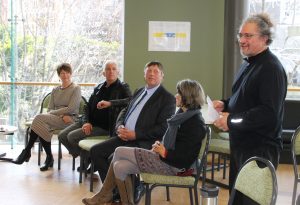
Poia Rewi (R) farewelling Lyn on behalf of Te Tumu. From left, Lyn and John, Matapura Ellison, and Katharina Ruckstuhl.
In 2011 Lyn joined us in Te Tumu. She says “I have worked with some really good and dedicated people here”. She is an active staff member, whose teaching and leadership has mainly been within our Indigenous Development programme. She has also formed excellent links with colleagues from other academic units, such as Geography and the Centre for Sustainability.
Coming to Otago allowed Lyn to engage more fully with her local Kāi Tahu connections. While she was in Auckland she helped found (with Hirini Matunga and Kepa Morgan) the taura here group, Kai Tahu ki Tamaki Makaurau. She already owned a crib at Warrington, so also used to attend various things at Puketeraki Marae at Karitāne so when she eventually moved down here to the University of Otago she was already involved to some extent with the marae – that spread to being on various committees and becoming very much part of the day-to-day life. She says “When I had my stroke I lived in our kaumatua house next door to the Runaka offices and that was amazing – such great support and whanaukataka from just living that close. I used to say that living away one could still participate, and yes you can, but I now realise that it is not the same as being in the landscape and rejoining with the whenua.”
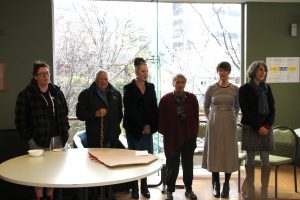
Megan Pōtiki, Hinerangi Ferrall-Heath, Janine Kapa, Khyla Russell, Lyn Carter, and Katharina Ruckstuhl.
Lyn was able to capitalise on her connections to Puketeraki in her popular paper, INDV301: Māori and Indigenous Development, Ethics and Governance, which not only provided students with theoretical tools, but took them outside the classroom for practical work with iwi and community groups on local projects.
Lyn’s research has followed a circular path with her current research interests drawing on her earlier research on how oral traditions verify place on the landscape. “I have now gone full circle and concentrate on place naming and landscape and identity – this led to me working with Sami researchers in arctic Norway where awareness of landscape and place naming shapes their existence. My research focus for the past 14 years has been on landscape and identity and in particular how place names can act as environmental indicators for landscape changes over time – more recently in the context of climate change. Again this is a key area working with Associate Professor Kaisa Helander in Gouvdageaidnu, the Sami capital in northern Norway.”
Lyn has many highlights from her academic career to look back on. “There are so many really – teaching has always been rewarding and seeing post-grad and graduate students develop and flourish has been great – brings truth to the whakatauki about new nets taking over from the old in terms of legacy for future Maori academics at universities. Each generation is the legacy of another. I have always felt privileged to have worked with people like Patu Hohepa, Bruce Biggs, Margaret Mutu, Ranginui Walker, Wairete Norman, Hugh Kawharu, up at Auckland – The ones who were instrumental in developing Maori Studies at a University and also getting the marae in place there.
“Te Wananga o Waipapa Marae never seemed like a University Department – more of a meeting of Maori minds. I remember we all took part in the Foreshore and Seabed march across the Harbour Bridge and hosted and supported the various hui and protest groups at Waipapa Marae – in some ways the Department operated as a marae, and the various protests were Maori society in action – Never sure though if many of the students appreciated it all LOL. But those were different times.
“What I have particularly liked at Otago is the whakawhanaukataka between Maori academics and staff on campus and how that brings Maori together from all disciplines – Maori first and that underpins academia.
“Perhaps the main highlights then are all the people I have met and worked with in some capacity and the broadening of mind and thought that that brings with it; not to mention the conferences and research projects that have stretched my own knowledge and capabilities for the better – I have discovered that yes, we are always learning.”
In 2018, Lyn published Indigenous Pacific Approaches to Climate Change: Aotearoa/New Zealand, published as part of Palgrave’s Studies in Disaster Anthropology Series. Click here to access the e-book. This was a sister volume to former Te Tumu academic, Jenny Bryant-Tokalau’s Indigenous Pacific Approaches to Climate Change: Pacific Island Countries.
Lyn says, “Publishing my book on climate change was an achievement – after my stroke I had three key goals and finishing that book was one of them. The others were seeing more of my mokos, and getting back on my motorbike.”
Indeed motorbike trips feature heavily in Lyn and her partner John’s retirement plans. This includes “extended touring around Te Waipoumanu and Aotearoa and visits with the mokos”, although she “may be delayed from going to London for a bit yet to see my son and whānau“. Lyn still has some work for Kāti Huirapa that she is continuing on with, but she says “I pretty much hope to do ABSOLUTELY NOTHING for a little while”.
He mihi nunui ki a koe, e hine; kāore e kore ka haere tonu āu mahi. Heoi, ko tō te Tumu tūmanako, ka harikoa, ka pārekareka hoki ngā tau maha o tō rītaiatanga.
Poia’s last seminar as Dean of Te Tumu
Professor Poia Rewi will be giving his last ever seminar to Te Tumu as Dean of our School. Poia has been an inspiring leader of Te Tumu and, as most of you know, we are very sad that he will soon be leaving the university for greener pastures elsewhere.
It would be wonderful if you are able to come along to the seminar; if not, then his talk will also be live-streamed on Te Tumu’s Facebook page.
Poia Rewi (Ngāti Manawa, Tūhoe, Te Arawa, Ngāti Whare and Tūwharetoa) hails from Murupara in the Bay of Plenty. He migrated south from Waikato University to Te Tumu, the University of Otago’s School of Māori, Pacific and Indigenous Studies in 2003 to help boost our Māori-language teaching programme. He is an acknowledged master of te reo Māori, always teaching the advanced-level language classes. A noted composer in his own right, he also taught Te Tumu’s advanced kapa haka classes. Poia completed his PhD in 2005, written completely in te reo Māori.
He has always been popular with students as a teacher and supervisor, as willing to feed their bellies with his soups as their minds with his knowledge. He became the Dean of Te Tumu and full professor in 2016.
Poia is also a serious and respected researcher, with publications on te reo Māori, language revitalisation, tikanga Māori, Māori oratory and Māori history. Indeed his thesis, published in 2010 as Whaikōrero: The World of Māori Oratory by Auckland University Press, went on to win the Best First Book Non-Fiction Award in the 2011 New Zealand Book Awards.
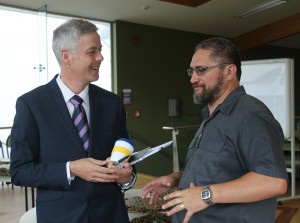
Professor Poia Rewi with DVC (Research and Enterprise) Professor Richard Blaikie at the launch of AKI.
Poia has always been a great innovator and collaborator. He helped develop AKI, an app to help learn Māori vocabulary with other Otago academics. He is also part of the team that came up with ZePA (Zero Passive Active), a model to advance the public’s attitudes and engagement with te reo Māori, and to promote Māori-language revitalisation, that is now used by a number of government agencies. Recently, Poia has worked with academics at Victoria and Auckland as a Co-Principal Investigator of Te Pae Tawhiti: Te Reo Māori, funded by Ngā Pae o te Māramatanga, looking at the value of te reo Māori in terms of the economy, cultural identity and social cohesion. This led to The Value of the Māori language: Te Hua o te Reo Māori, published by Huia in 2014, that won the Te Reo Māori category of Ngā Kupu Ora Aotearoa Māori Book Awards in 2015. Poia is currently Deputy Director of Ngā Pae o te Māramatanga, a position he will reluctantly have to leave behind for his new role in Wellington.
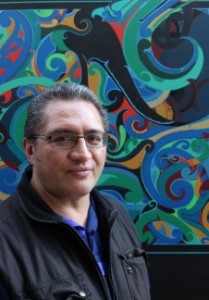 The revitalisation and advancement of te reo Māori have always been Poia’s passions. He was appointed to the board of Te Taura Whiri i te Reo Māori (Māori Language Commission) in 2012, and in 2014 was seconded from the university to be their acting Chief Executive. Poia’s new role, starting next month, is also in a similar field, as Tumu Whakarae (Chief Executive) of Te Mātāwai, a government agency created to assist hapū, iwi and communities in the important task of Māori-language revitalisation.
The revitalisation and advancement of te reo Māori have always been Poia’s passions. He was appointed to the board of Te Taura Whiri i te Reo Māori (Māori Language Commission) in 2012, and in 2014 was seconded from the university to be their acting Chief Executive. Poia’s new role, starting next month, is also in a similar field, as Tumu Whakarae (Chief Executive) of Te Mātāwai, a government agency created to assist hapū, iwi and communities in the important task of Māori-language revitalisation.
Our loss will be the community’s gain. Poia has been an amazing example for us in Te Tumu and the University of Otago, as a person who lives and breathes tikanga Māori, as an inspirational teacher, a leader in research, as well as a colleague and friend in the academy. We will surely miss him.
Fingers Crossed for Marsden Second Round
Te Pūtea Rangahau a Marsden/Marsden Fund is one of the most prestigious opportunities for externally-funded research grants, and highly competitive. The grants fund three-year research projects, as well as channel some income into the university. The Marsden Fund operates as a two-stage process. Although the quality of all the initial applications (where the research idea is pitched) tends to be very high, most applicants do not get invited to submit a full proposal. In the Humanities Panel just 26.1% got through to the second round, and in Social Sciences it was 22.6%. At the second round successfully gaining a grant then becomes a (roughly) 50/50 chance. So we can see, winning a Marsden is very hard, and getting through to the second round is worth acknowledging and celebrating.
It will now be an anxious time for our Te Tumu staff, Dr Lyn Carter and Dr Erica Newman, involved in preparing their full proposals.
Dr Lyn Carter is part of larger team led by Dr Pedersen Zari of Victoria University, with the project: Empowering Oceania Nature-based Urban Design: Knowledge sharing, Leadership and community Partnering in Climate Change Adaptation. This is a “standard” Marsden application, i.e. submitted by experienced researchers, most often as a team.
Summary: Climate change impacts settlements of Oceania, including Aotearoa, in significant ways. ‘Nature-based solutions’ (NbS) have great potential to address these impacts. Incorporating traditional knowledge into NbS will offer more culturally appropriate and long-term solutions, however links to wellbeing agendas have not been fully explored. This research investigates how well being can be strategically linked to ecologies, and how this can be harnessed to create ecologically resilient ‘Ocean cities’. Research into how the human-nature-climate nexus can be leveraged to enhance the effectiveness of NbS will make a significant contribution to the urban climate adaptation research in Aotearoa, the Pacific, and globally.
Dr Erica Newman project is a “fast-start” application, which are for early career researchers, often working by themselves. Her topic is: Journey Home: Descendants of Māori adoptees search for their tūrangawaewae.
Summary: Māori adoptees who have no knowledge of their Māori heritage pass the unknown to their descendants. Focusing on these descendants, this project will explore; how they identify with their taha Māori, avenues they have taken to connect to their taha Māori, and how they are accepted by their whānau and hapū. I will follow participants on their journey of discovery and will examine hapū membership eligibility. Oral narratives will be the primary base for this project with published and unpublished sources used to support and highlight issues the participants encounter. This will begin a new area of research that will highlight the issues of transracial adoption on identity and well-being for descendants of Māori adoptees in Aotearoa New Zealand. [Advisor: Associate Professor Angela Wanhalla.]
We all have our fingers crossed that Erica and Lyn’s projects make it through.
Seminar: He Matapihi ki te Ao Tuupuna
Te Tumu’s Research Committee is pleased to announce the resumption of its seminar series on Wednesday 20 May 2020, 2-3pm [NZ Time] with Dr Tangiwai Rewi and Taamirangi Sam-Turner presenting. This research has emerged out of Tangiwai’s PhD, with Taamirangi researching the topic, on how to engage people in conducting their own whānau research, as a summer intern through Ngā Pae o te Māramatanga. For more details, see the Seminar Poster- Rewi & Sam-Turner (1)
The presentation will be blingual (English and te reo Māori). All interested people are most welcome, including Te Tumu’s postgraduate students.
To attend, click here for the Zoom link; the password is 868657.
Te Tumu Research Under Lockdown
The Lockdown has proved hugely disruptive to all Te Tumu staff, impacting on all aspects of our academic lives, including research. We now move from Lockdown to Level 3 – which so far doesn’t look too much different for us. Despite this, we have still been managing to keep our research productivity going, hopefully with some “outputs” in the offing.
To find out a little bit more, I sent out a request to staff to send in a few details on the highs and lows of their research during lockdown.
First, let’s talk about some of the problems. Some staff talked of getting “zui’d out”, i.e. too many Zoom hui. There’s been some research on how tiring Zoom meetings can be, and what with teaching online, staff and school meetings, supervision get-togethers, and other hui, it can seem like some days we are constantly on Zoom. Then there’s the extra effort preparing for online teaching, especially in the reo classes where you need to convert the quick-flowing quick-changing interactive tasks into online teaching activities.
Then there are the events that have been cancelled or deferred, such as Poia Rewi’s Māori language symposium that he had planned with the Government Department Collective, and Michelle Schaaf’s planned delivery of Summary Report for ‘Childhood in a Changing Pacific’: Samoa and Dunedin to Pacific communities in Samoa and Dunedin. Lachy Paterson had also been planning to kick off his upcoming research and Study Leave (RSL)with a couple of conferences in France, but these have both been cancelled.
Then there’s working from home. Three of our staff have young children also locked down with them, which creates its own complications. As Karyn says, she has also been “researching meal plans for a fussy eater and activities to keep a 13 month old entertained” – hard work when “food still refuses to get eaten and suggested activities don’t keep her attention for longer than 5 minutes!!” And one person complained (was it a complaint?) that “My new office space is far too close to the pantry”.
So if those were the lows, what were the highs?
Poia says he is pleased that Gianna Leoni and Tangiwai Rewi have come on board the Te Reo Me Ngā Tikanga Māori Platform for 2020 research, looking at the impacts of research by researchers under Ngā Pae o te Māramatanga. Gianna is also feeling chuffed that she has finished a research proposal she had been needing to do for a few months – and having it accepted.
Tangiwai, as Chair of the Te Tumu Research Committee, also organised a “Hot Tips” Zoom session with staff earlier this month, on how to enhance their applications for University of Otago Research Grants (UORGs). We were really pleased to have the ebullient Humanities Associate Dean (Research), James Maclaurin there to share his knowledge with us.
Both Lachy and Tangiwai are on RSL next semester, so have been revising their travel, and research and writing plans, which has been difficult given that no one knows how long we will be in Level 3, or when normality will return.
Lachy has been organising getting the proofs and indexing for a new edited collection on Indigneous textual cultures, which will hopefully be out in September. See here for more info. He been working on the Te Hau Kāinga/Māori Home Front project, including translating the blog posts. If you haven’t read the latest ones (in English or Māori) then check them out at the project website. You can also listen to him and Angela Wanhalla promoting the project on Radio New Zealand’s Saturday Morning programme on Anzac Day: Lachy has also been asked to submit an abstract for a chapter on Māori newspapers in The Edinburgh Companion to British Colonial Periodicals.
Michelle has been busy transcribing interviews, sorting participants’ diaries and personal papers collected during her recent RSL, in preparation for UORG application. She is also part of a team who have just completed the Summary Report for Childhood in a Changing Pacific: Samoa and Dunedin. She has also been chosen to write a chapter for an e-book for Bridget Williams Books on “’Thesis Survivor Stories”, to be published in June.
Megan Pōtiki is busy on finishing her thesis. She recently published “Te hū o Moho: The call of the extinct Moho: The death of the Māori language at Ōtākou” which appeared in the latest issue of Te Pouhere Kōrero.
Lyn Carter has completed a journal article during the Lockdown, which she has sent off to a Sami journal. Otherwise, she says, she has been having lots of Zoom meetings with various research clusters around climate change and health/climate change and environment, including on her National Science Challenge projects, Building Better Homes, Towns and Cities, and BioHeritage.
Building on her publishing success from last year, Telesia Kalavite, is currently writing a journal article for the New Zealand Journal of Educational Studies. She is also one of the principal applicants for a successful grant application for Humanities Research Network with an amount of $10,000 for 2 years. The name of the project is: “Pacific Thought Network (PacTNetwork)”. Telesia is now developing an application for UORG grant to further her research.
Our newest staff member, Vaivaimalemalo Michael Ligaliga, has been very busy. He has been developing a book proposal for Palgrave Macmillan based on his PhD thesis, as well as a UORG application. Michael has also been working on a chapter on the Samoan perspective on addressing domestic or family violence for the Handbook of Positive Peace , and another for Decolonizing Indigenous Research Methodologies in Peace and Conflict Research.
Michael Reilly has been continuing his work, writing chapters about Māui Pōtiki, one on a Ruapuke Island narrative, and another looking at two stories by Mohi Ruatapu. His aim is to incorporate these chapters into a book about Maori tribal traditions, perhaps with Auckland University Press, building on the kind of topics he has taught in his MAOR207 and INDV307. Michael has also been asked to contribute a chapter on emotions in the Pacific and Australia for an edited book, The Routledge Modern History of Emotions.
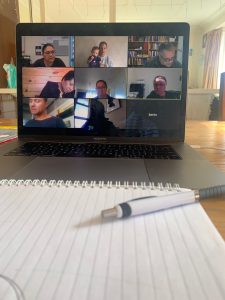
Perpetual hui on Zoom! Here Karyn and Manuhou are attending a board meeting for Te Rūnanga Māori of Ako Aotearoa.
The Lockdown has disrupted Karyn’s Marsden research, so she’s been busy working on a new plan, and catching up on some of her reading. She has recently been published by Lancet Oncology. This came from an invitation to her and her collaborators to the International Gastric Cancer Linkage Consortium in Wānaka last year to share their research on updating the international practice guidelines for Hereditary Diffuse Gastric Cancer. Karyn is currently working on the final draft of a book chapter she is co-writing with Marcelle Wharerau (ex-Te Tumu student, now teaching at Waikato University) on subversive pedagogies entitled, “Tūngia ki te marae, tau ana – culturally transformative learning in universities”.
Paerau Warbrick was enjoying his RSL when the Lockdown was imposed, focusing his research on historic Māori elections, and the lawsuits that often went with them. He has just finished a draft article on the 1876 Eastern Maori election petition involving Hēnare Pōtae, Rōpata Wahawaha and Karaitaina Takamoana and the 1887 Northern Maori election petition involving Hirini Taiwhanga and Wī Kātene. Paerau is also working on an article on the monumental election battles between Wī Pere and James Carroll in the 1884, 1887 and 1890 elections, and making the finishing touches to another article regarding the UK Supreme Court and how it should take lessons from the NZ Court of Appeal Maori Council case of 1987 and the Foreshore and Seabed case of 2003.
Wherever you are, I hope you are all staying safe and keeping well, and being productive with your research (if that’s your thing).
First Te Tumu Seminar for 2020
Many people will remember Suzanne Duncan (Te Rarawa, Te Aupōuri), a former student, and lecturer at Te Tumu. She left a few years ago to return to her rohe ā-iwi, the Far North, where she works in Kaitaia as Principal Strategist for Te Hiku Media. Suz will be back in Dunedin next week with the General Manager, Peter-Lucas Jones (Ngāi Takoto, Te Rarawa, Te Aupōuri, Ngāti Kahu); they are presenting the first of Te Tumu’s seminars this year on the amazing work being done at Te Hiku [see abstract below].
Where: Te Paparewa (RGS2 – ground floor of Te Tumu).
When: 3.30pm, Wednesday 4 March.
Abstract: Te Hiku Media is a not-for-profit charitable trust belonging to the five iwi of the Far North, Ngāti Kuri, Te Aupōuri, Ngāi Takoto, Ngāti Kahu and Te Rarawa. Founded as an iwi radio station in 1991, Te Hiku Media has grown as an iwi broadcaster to include regional news, the live streaming of nationally significant events, Māori language archiving and the development of natural language processing tools for the revitalisation of te reo Māori. This seminar will share the journey that has been led by their kaumātua and outline their recently awarded $13 million dollar data science project, Papa Reo.
Publishing award
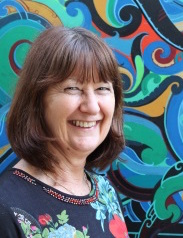 Congratulations to Lyn Carter, the coordinator of our Indigenous Development Programme, for her recent article co-written with Janet Stephenson (Centre for Sustainability) and Claire Freeman (Geography) from Otago, and others in the journal Society & Natural Resources.
Congratulations to Lyn Carter, the coordinator of our Indigenous Development Programme, for her recent article co-written with Janet Stephenson (Centre for Sustainability) and Claire Freeman (Geography) from Otago, and others in the journal Society & Natural Resources.
The article won the S & NR best publication award for 2019. Click on the link to read it: Hybrid Neoliberalism Implications for Sustainable Development

